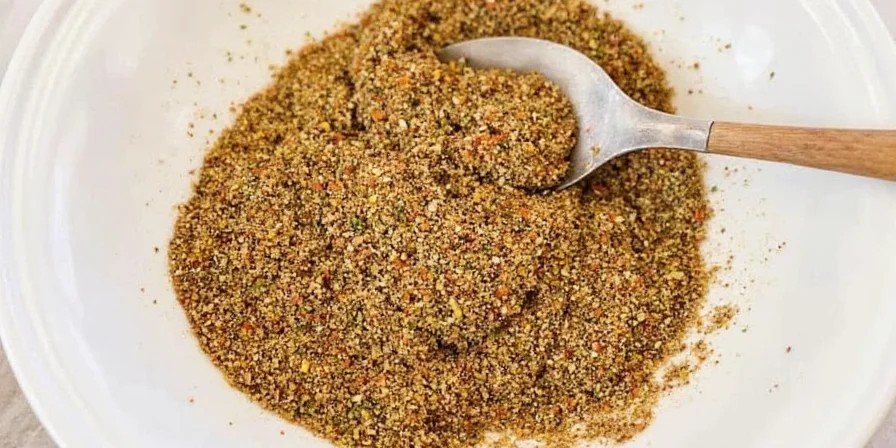Unlocking the Flavor of Greek Seasoning: A Culinary Journey

Introduction
Greek seasoning is a delightful blend of herbs and spices that transports your taste buds straight to the Mediterranean. This versatile mix can elevate a wide array of dishes, making it a staple in both traditional Greek cuisine and modern culinary adventures. In this blog, we will explore the origins, ingredients, uses, and health benefits of Greek seasoning, providing you with everything you need to know to incorporate this vibrant mix into your cooking.
What is Greek Seasoning?
Greek seasoning is a combination of dried herbs and spices that reflect the flavors of Greece. Typically, it includes ingredients such as:
- Oregano
- Thyme
- Basil
- Marjoram
- Rosemary
- Garlic powder
- Lemon zest (or lemon peel)
- Salt and pepper
This aromatic blend is used to season meats, vegetables, salads, and even soups, offering a taste of the sun-drenched landscapes of Greece.
Historical Context
The use of herbs and spices in Greek cooking has a long history, dating back to ancient times. The Greeks revered their herbs for both culinary and medicinal purposes. Oregano, for instance, was seen as a symbol of joy and was often used in wedding ceremonies. The ancient Greeks also believed that thyme had protective qualities, making it a popular choice in various dishes.
| Herb/Spice | Historical Significance |
|---|---|
| Oregano | Symbol of joy and used in weddings |
| Thyme | Believed to have protective qualities |
| Basil | Associated with love and fertility |
Key Ingredients of Greek Seasoning
Let’s dive deeper into the key ingredients that make up Greek seasoning and their unique characteristics:
Oregano
Oregano is the star of Greek seasoning. Its robust flavor profile complements a variety of dishes, especially grilled meats and vegetables. With its earthy notes and slightly peppery taste, oregano is a must-have in Greek cuisine.
Thyme
Thyme adds a subtle depth to the seasoning blend. Its slightly minty flavor pairs well with both savory and sweet dishes, making it a versatile herb in cooking.
Basil
Basil brings a sweet and aromatic flavor to the mix. In Greek cuisine, basil is often used in salads and sauces, enhancing the freshness of the dishes.
Marjoram
Marjoram has a milder flavor compared to oregano and is often used to balance the strength of other herbs. Its sweet and citrusy notes make it a delightful addition to the seasoning blend.
Garlic Powder
Garlic powder adds a savory kick to the seasoning. It enhances the overall flavor profile, making it perfect for marinades and dressings.
How to Use Greek Seasoning
Greek seasoning is incredibly versatile and can be used in various ways:
- Marinades: Combine Greek seasoning with olive oil, lemon juice, and your choice of protein for a delicious marinade.
- Roasted Vegetables: Toss vegetables with Greek seasoning and olive oil before roasting for a flavorful side dish.
- Salads: Sprinkle Greek seasoning on salads for a burst of flavor. It can be mixed with yogurt to create a tangy dressing.
- Soups and Stews: Add Greek seasoning to soups and stews to infuse them with Mediterranean flavors.
Cooking with Greek Seasoning: Recipes to Try
Here are a few delicious recipes that showcase the versatility of Greek seasoning:
Greek Chicken Skewers
These flavorful chicken skewers are perfect for grilling or baking.
- Ingredients:
- 1 lb chicken breast, cut into cubes
- 3 tbsp Greek seasoning
- 2 tbsp olive oil
- Juice of 1 lemon
- Skewers
- Instructions:
- In a bowl, mix chicken cubes, Greek seasoning, olive oil, and lemon juice.
- Let marinate for at least 30 minutes.
- Thread chicken onto skewers and grill until cooked through.
Greek Roasted Potatoes
A simple yet flavorful side dish that pairs well with any meal.
- Ingredients:
- 2 lbs baby potatoes, halved
- 3 tbsp Greek seasoning
- 4 tbsp olive oil
- Salt to taste
- Instructions:
- Preheat the oven to 400°F (200°C).
- In a large bowl, toss potatoes with Greek seasoning, olive oil, and salt.
- Spread on a baking sheet and roast for 30-35 minutes until golden brown.
Health Benefits of Greek Seasoning
In addition to its delightful flavor, Greek seasoning offers various health benefits:
- Antioxidant Properties: Many of the herbs in Greek seasoning, such as oregano and thyme, are rich in antioxidants, which help combat oxidative stress in the body.
- Anti-Inflammatory Effects: Ingredients like garlic and oregano have anti-inflammatory properties, which can support overall health.
- Digestive Health: Herbs like basil and thyme can aid digestion and promote gut health.
Conclusion
Greek seasoning is more than just a blend of herbs and spices; it’s a gateway to the rich culinary traditions of Greece. Whether you’re marinating meat, seasoning vegetables, or dressing salads, this aromatic mix can elevate your dishes and bring the essence of the Mediterranean to your table. Explore the world of Greek seasoning and unlock a realm of flavors that will delight your palate and nourish your body.










 浙公网安备
33010002000092号
浙公网安备
33010002000092号 浙B2-20120091-4
浙B2-20120091-4